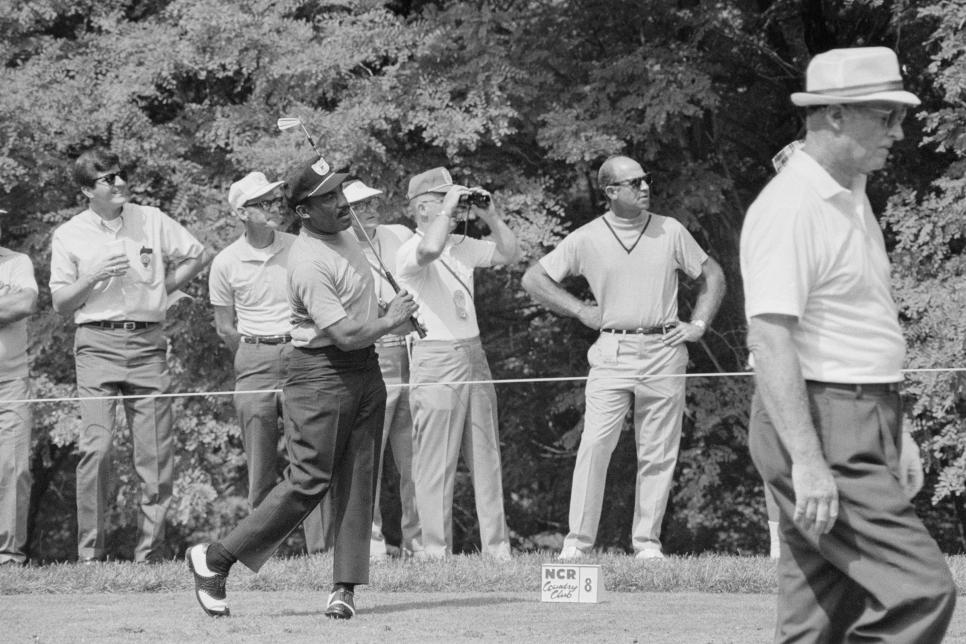I don’t smile much, and I never laugh. If you’d been through what I’ve been through, you wouldn’t be smiling either.
Charlie Sifford said these words to Guy Yocom in his late 70s, a little more than a decade before he died in 2015, and they might be the best summation of everything he endured in his long, successful, but incredibly difficult career in professional golf. Sifford was the first full-time Black member of the PGA Tour, having fought and eventually won against a “Caucasians only” clause that persisted all the way up to 1960. When he was finally able to play against the best players in the world, he was already 38 years old, and a large chunk of his prime had passed. He still managed to win two tour events, and he would go on to win the Senior PGA Championship, but even after he broke golf’s color barrier, his time on the course was plagued by harassment, racial resentment and occasionally outright threats against his life.
Which, sadly, wasn’t always as bad as what he faced off the course. Larry Mowry, a fellow pro, wrote in the pages of Golf Digest about a night when he and Sifford drove from Doral in Miami to Wilmington, N.C. for the next tour event. Stopping at a gas station on a moonless night in south Georgia, they encountered two cops who spoke to them with outright hostility. Mowry was stunned into silence, and when one cop approached Sifford to ask him about the car he was driving—he had recently bought a new Buick—Sifford adopted a high-pitched voice and said he was driving for “Mistah Larry.” That placated the cop, just barely, and they managed to leave without harm, but the way Sifford was forced to shove his own humanity aside just to survive was typical of his experiences on tour … even if it was stunning to Mowry, whose childhood in San Diego hadn’t prepared him for this reality.

Bettmann
RELATED: A rough ride with Charlie Sifford
Elsewhere, especially in the early days, Sifford was barred from “white” hotels, couldn’t eat in many diners and had to use separate restrooms, drinking fountains, and more. On the course, fans (and sometimes fellow players) were known to kick his ball into the rough, and in one tournament in Greensboro, when he had the audacity to take a first-round lead, he received a death threat at night and was hounded the next day by more than a dozen men, many of whom weren’t arrested until late in the back nine.
All of this contributed to a justified anger, and a bitterness that lasted into old age. Some men are able to forgive, if not forget, but Sifford wasn’t willing to grant forgiveness, and the more you learn about his story, the more you understand why. On this week’s Local Knowledge podcast, we examine his extraordinary life, with all its extraordinary difficulty, and dig deep into Sifford’s incredible legacy.
MORE: Gary Player on Charlie Sifford: The Man Who Never Quit
This article was originally published on golfdigest.com




